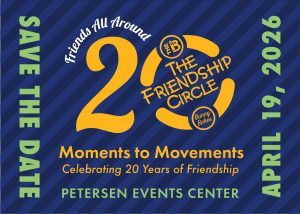
Art by Sefira Lightstone
A WEEKLY TORAH THOUGHT FROM RABBI MORDY
This week’s Parsha, Korach, discusses a rebellion against Moses by—you may have guessed it—Korach. Korach had many followers in his day who questioned the legitimacy of Moses’s leadership, particularly the perceived nepotism of his appointment of his brother Aaron to the high-priesthood. Famously, they faced off against each other as any great leaders would; Moses’s group and Korach’s group brought competitive sacrifices to see who was, in fact, on the side of right. Sure enough, as only a biblical saga would have it, the earth opened up, just as G-d warned it would, and swallowed up Korach and his people. The rebellion was quashed.
We learned about this as kids, recognizing Korach as the obvious villain. The nerve he would have to question Moses at this point after all he had done for the Jews?! And to create such discord among the Jewish people during their infant stages as a nation?! As we saw it, Korach was the quintessential rabble rouser.
And then, a good while back, I studied the teachings of The Lubavitcher Rebbe, Rabbi Menachem Mendel Schneerson, whose 30th yahrtzeit is this coming Tuesday, the third of Tammuz. The Rebbe was and is a mentor to me and Rivkee, our son Mendy is named after him, and our decision to move back to Pittsburgh and start The Friendship Circle was inspired by his vision.
The Rebbe teaches this Parsha in a way that flips it on its head. Sure, Korach did not get it right. Yes, he was no match for Moses. But the mere fact that we have a Parsha named after him shows us that there is much to learn from his behavior. The Rebbe would view Korach in a way that says, yes, he made a mistake, but let’s not vilify him. Let’s learn from him. And that was the constant teaching of the Rebbe. To view scenarios as positively as possible and to learn from them. Sure, there are times when evil rears its head and we need to know it as such. It’s not about just viewing everything with rosy glasses, but when there is an ability to, we have the obligation to view things positively. Everything G-d does is for the good; even though sometimes, we have to look hard for it.
In a recent book about the Rebbe, Rabbi Joseph Telushkin writes about how the Rebbe would try to never use the word “deadline,” rather replace it with “due date,” since the former connotes death and the latter, life. A slight change, perhaps almost insignificant, but with it a shift in perspective that allows us to view all that happens in our lives and the world in general more positively.
In the Rebbe’s memory and at this time of so much dissonance, let us resolve to view others more positively and to strive to make this world a better, more G-dly place by increasing in acts of goodness and kindness. Good Shabbos!






